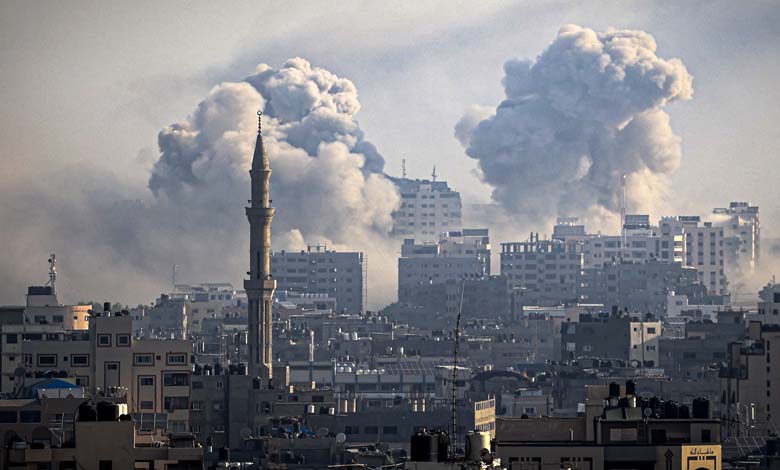New Gaza between American Opportunity and Palestinian Fears

Recent statements by U.S. officials about rebuilding areas of Gaza now under Israeli control have sparked a wide-ranging debate over the true motives and feasibility of what has been described as a “partial reconstruction” plan.
While supporters hail it as a “historic opportunity for a new Gaza,” critics see it as an attempt to legitimize a “new form of occupation disguised as development and reconstruction,” according to The New York Times.
-
Vance Tackles Thorny Issues in Gaza: Hamas’s Arsenal and Reconstruction
-
Gaza Truce: Israel identifies a body as U.S. diplomatic efforts intensify to sustain calm
American backing for the initiative has come from prominent political figures, including U.S. Vice President J.D. Vance and former presidential adviser Jared Kushner, who both argued that rebuilding “should not wait for Hamas to be completely disarmed.”
During a press conference in Tel Aviv, Kushner proposed launching immediate reconstruction in areas east of what he called “the yellow line,” stating, “No funds will be allocated to territories still controlled by Hamas; instead, we will build a new Gaza in the part held by Israel.”
According to the latest ceasefire agreement, Israel now controls approximately 53% of Gaza’s territory—areas largely deserted after the Israeli military ordered civilians not to return. Field reports indicate that Israel has begun marking these zones with yellow concrete blocks, while around 30,000 Palestinians are temporarily housed in Rafah and Khan Younis under Israeli control, barred from returning to their original homes.
-
Serious truce violation: Israel strikes Rafah after vehicle targeted in Gaza
-
The recent escalation in Gaza: will it accelerate international oversight of the truce?
Mixed Reactions
The plan has been welcomed in pro-Israel circles as an opportunity to create a “new Palestinian model” free from Hamas’s influence, featuring modern infrastructure and efficient governance.
Vance expressed enthusiasm during his visit to Israel, saying, “Take the areas where Hamas no longer operates and start rebuilding them quickly—to provide housing, jobs, and security for Palestinians.”
However, Israeli military experts have warned that these zones could become a form of “packaged occupation.” Tamir Hayman, former head of Israeli military intelligence, cautioned, “To keep Hamas out, Israel will need to maintain constant surveillance and permanent checkpoints, which could provoke retaliatory attacks.”
-
Trump announces the start of Phase Two of the plan to end the Gaza war: pathway and obstacles
-
Massive destruction as thousands of displaced Palestinians return to Gaza
Palestinian Rejection
On the Palestinian side, the project has been met with sharp criticism. Economists argue that it reflects a fundamental misunderstanding of Gaza’s reality. Eid Abu Ramadan, head of the Gaza Chamber of Commerce, stated, “Israel controls the agricultural and industrial lands. So where exactly will they build housing? It makes no sense.”
Palestinian activists also warn of the social implications of such a plan. Mohammed Fares, a displaced resident, said, “We don’t want substitute projects or temporary lives. We just want to return to our homes that were destroyed—our roots are there.”
The newspaper concluded that the “Gaza reconstruction plan” illustrates a clash of perspectives: for the U.S., it’s a chance for stability; for Israel, a security concern; for Palestinians, a project of fragmentation and forced transformation.
Yet, beyond rhetoric, real obstacles persist. Political disagreements, funding challenges, and deep mistrust could easily turn this ambitious initiative into another “mirage” in the long and painful history of the Israeli-Palestinian conflict.












